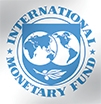Abstract
The administrative ability of the state to design and implement effective policy is an essential condition for economic development. Social scientists have long devoted attention to domestic forces underpinning state capacity, but not to the impact of the world system. A key mechanism through which this operates is the activities of Western-dominated international organizations, exerting pressure on developing countries to unleash market forces. We take on this task by examining the impact of policy reforms mandated by the International Monetary Fund (IMF) on the bureaucratic quality of its borrowing countries. To develop a nuanced account of this impact, we scrutinize the IMF's practice of 'conditionality'-far-reaching policy reforms borrowing countries must implement as a precondition for access to loans-which may (unintentionally) incapacitate state bureaucracies. In particular, so-called 'structural conditions' can exert a deleterious effect on bureaucratic quality, as they increase the risk that bureaucrats fall prey to special interests and reduce the range of policy instruments available to bureaucrats to steer the economy. We test these arguments using a new dataset on IMF conditionality from 1985 to 2014. Our analysis shows that structural conditions-and, more specifically, conditions on privatization, price deregulation, and public sector employment-reduce bureaucratic quality. Deploying a new instrumentation technique, the analysis also discounts the possibility that the relationship is driven by the Fund imposing structural conditions precisely in countries with low bureaucratic quality. These findings suggest that conditionality needs to be carefully designed so that it does not undermine local institutions.



